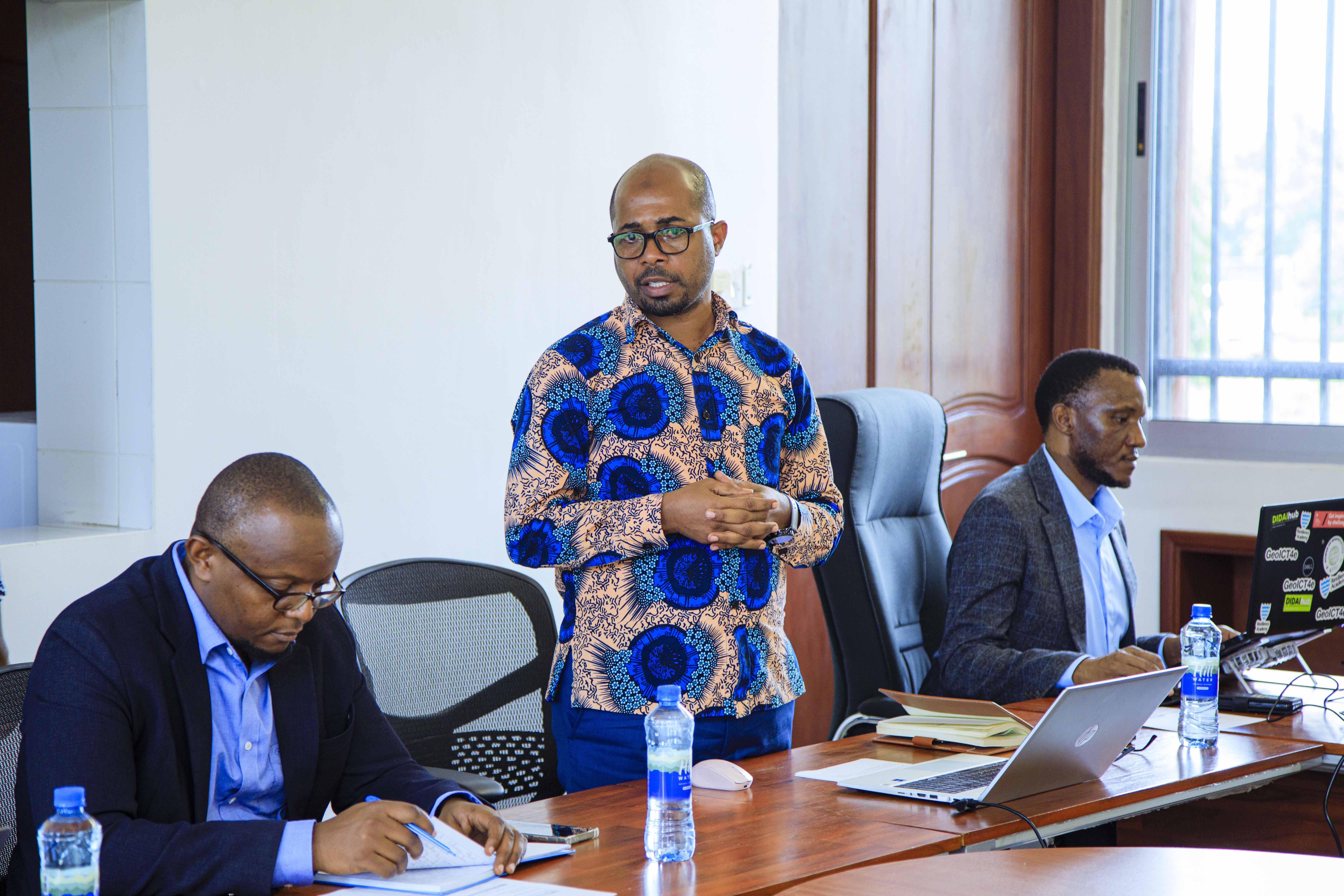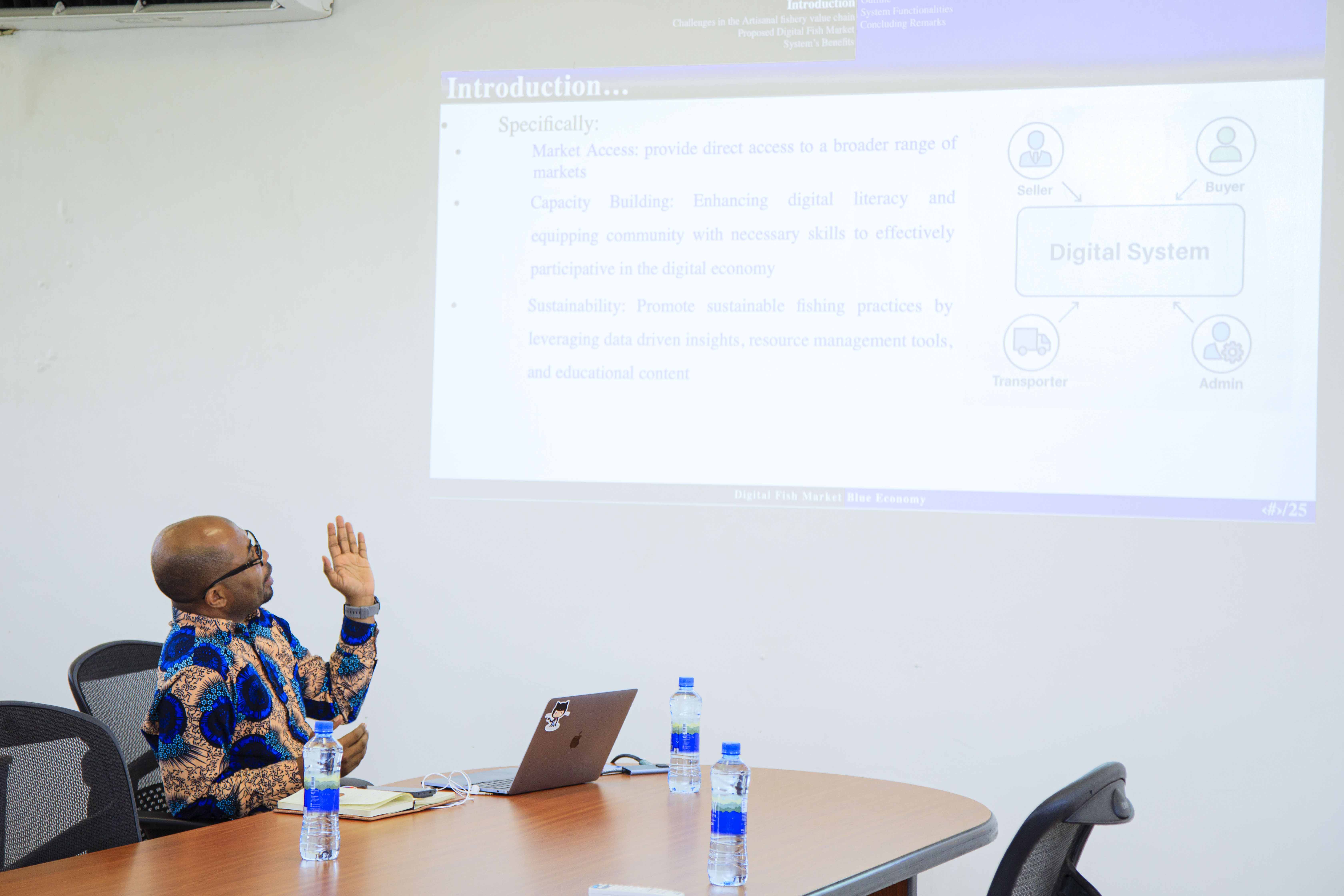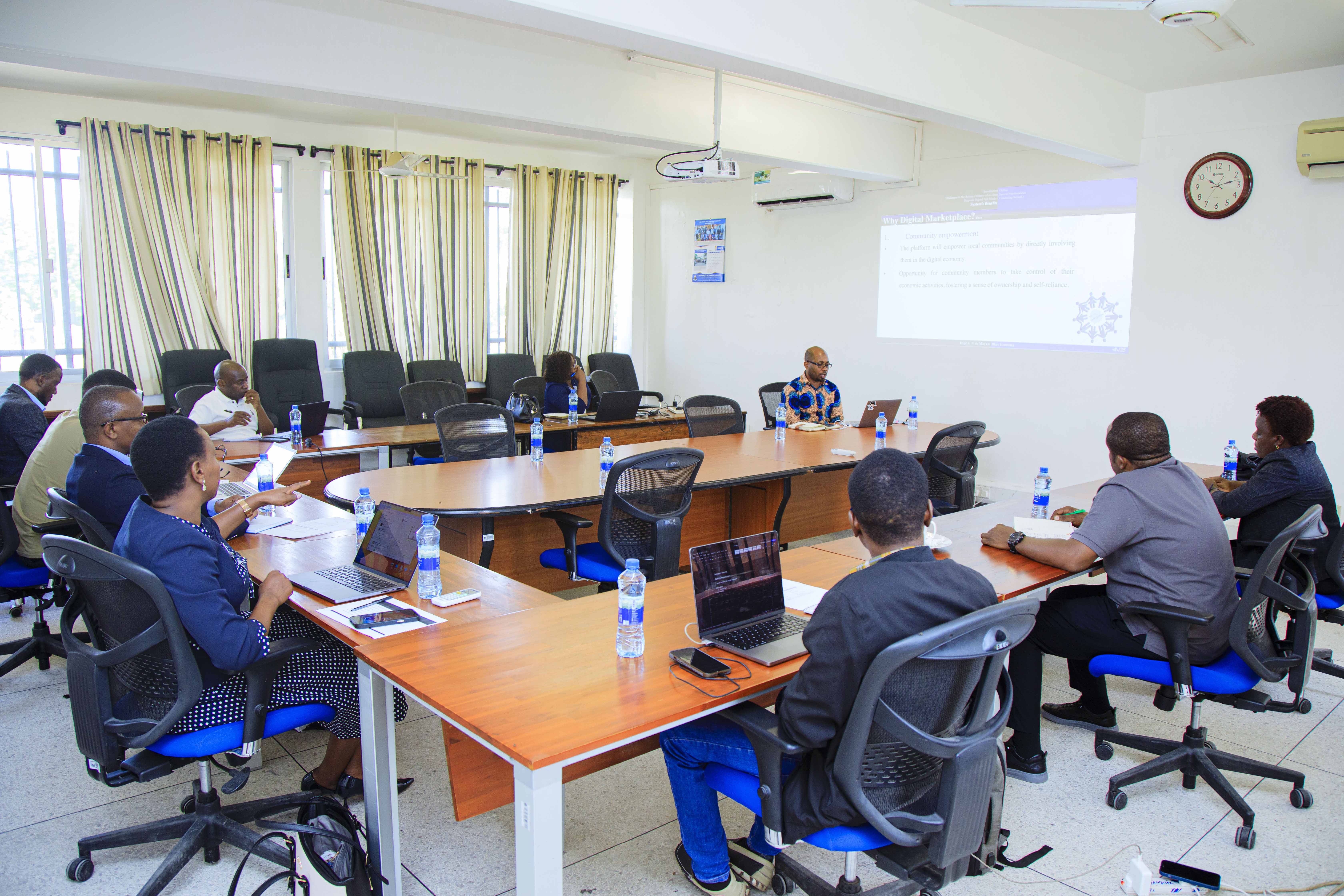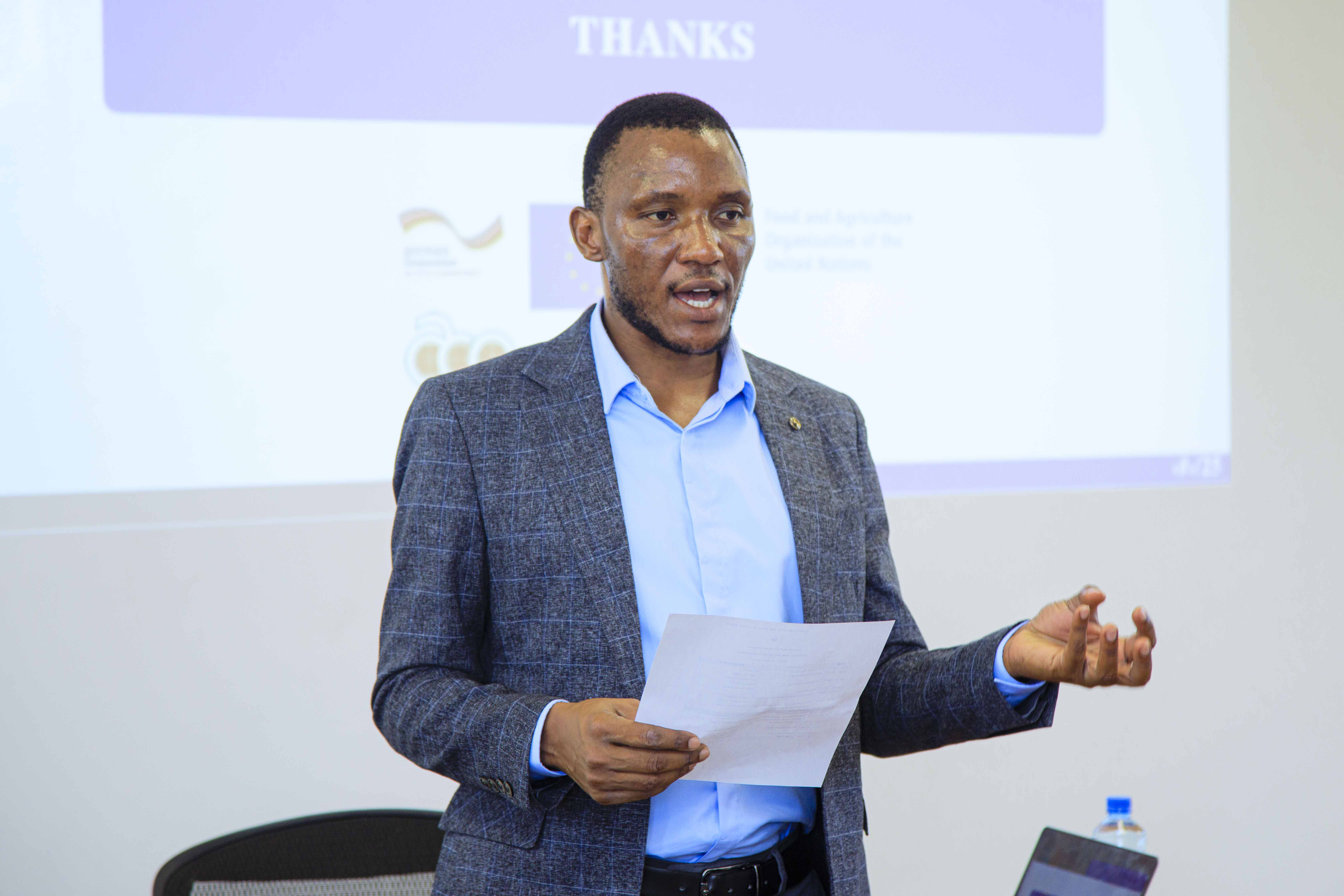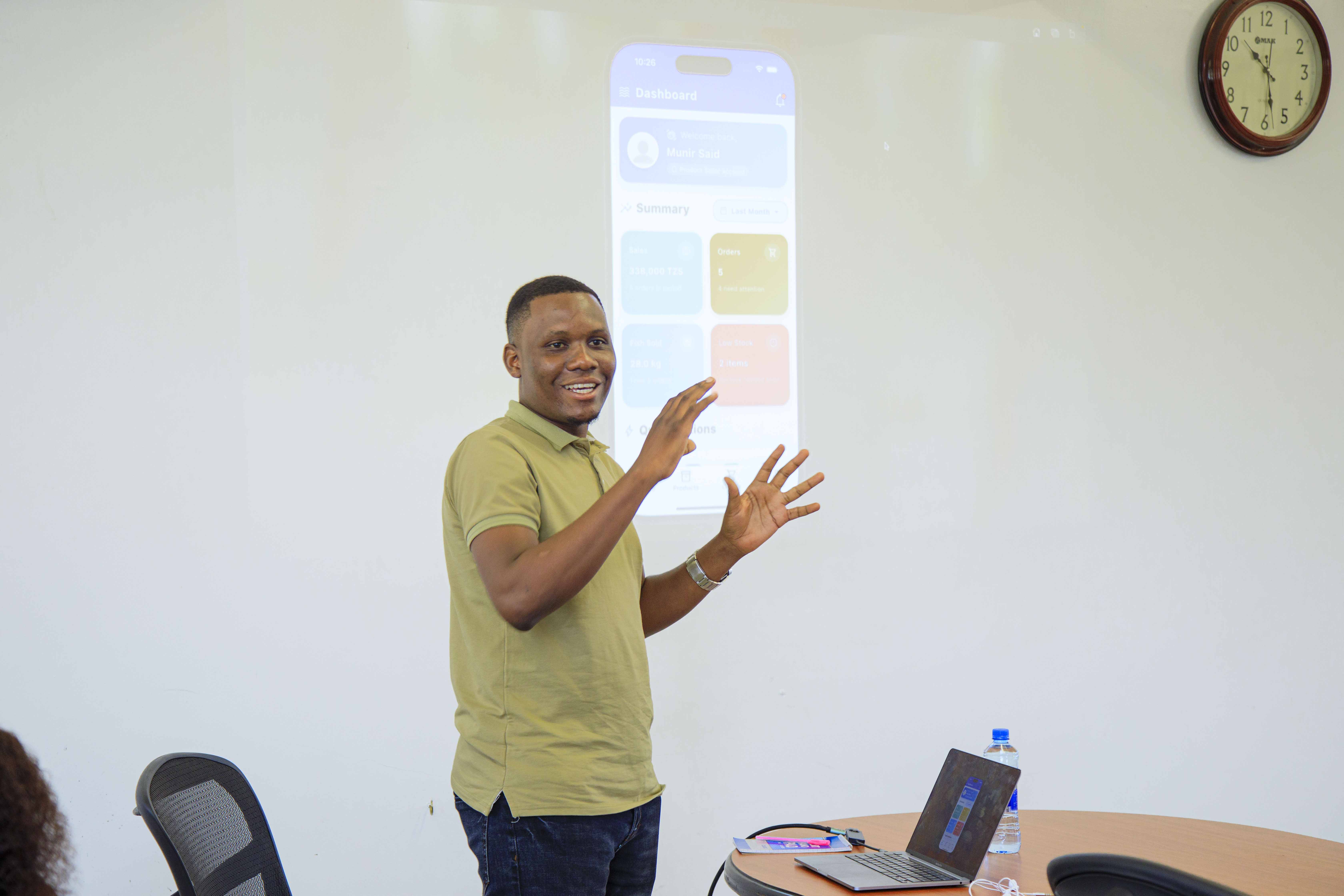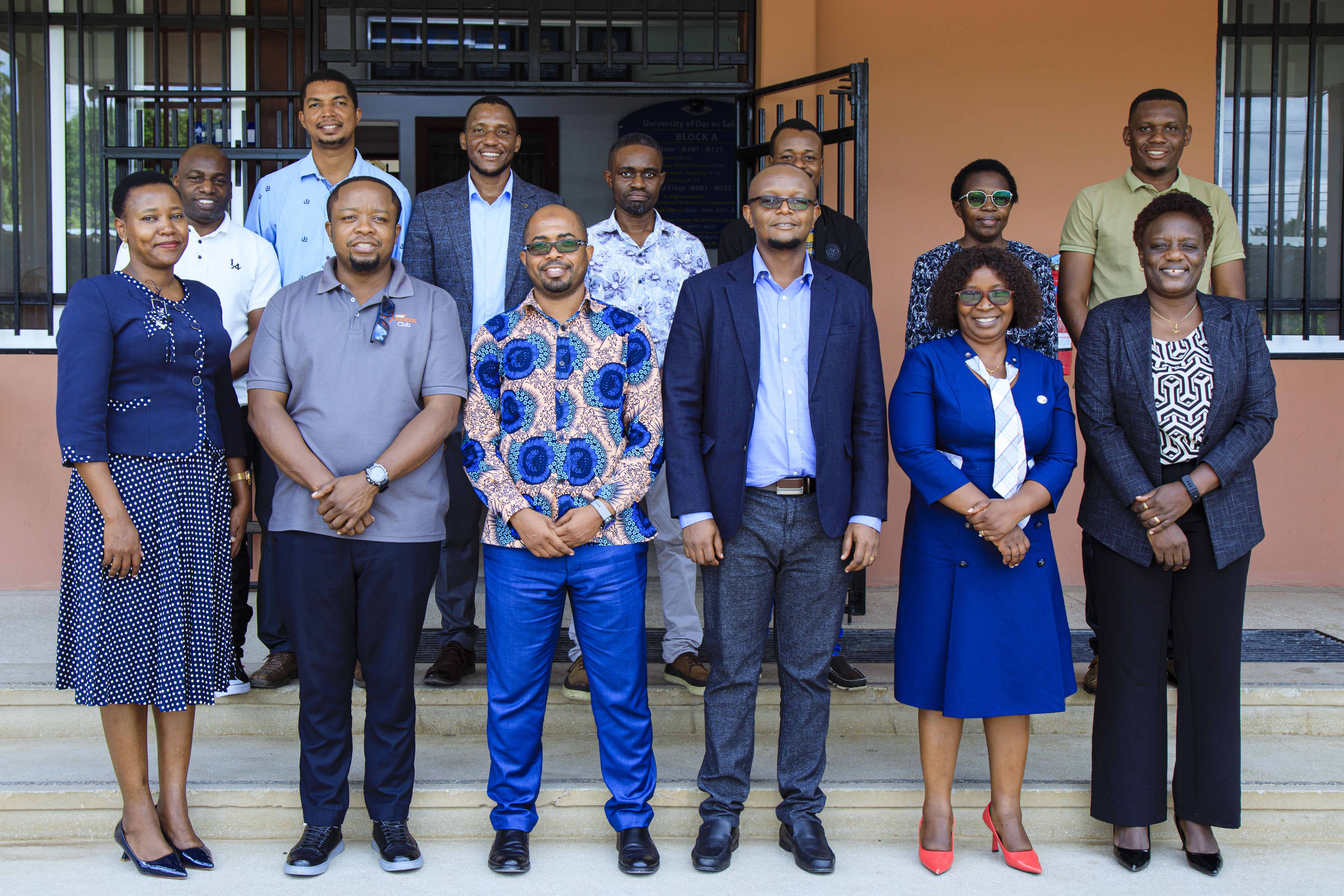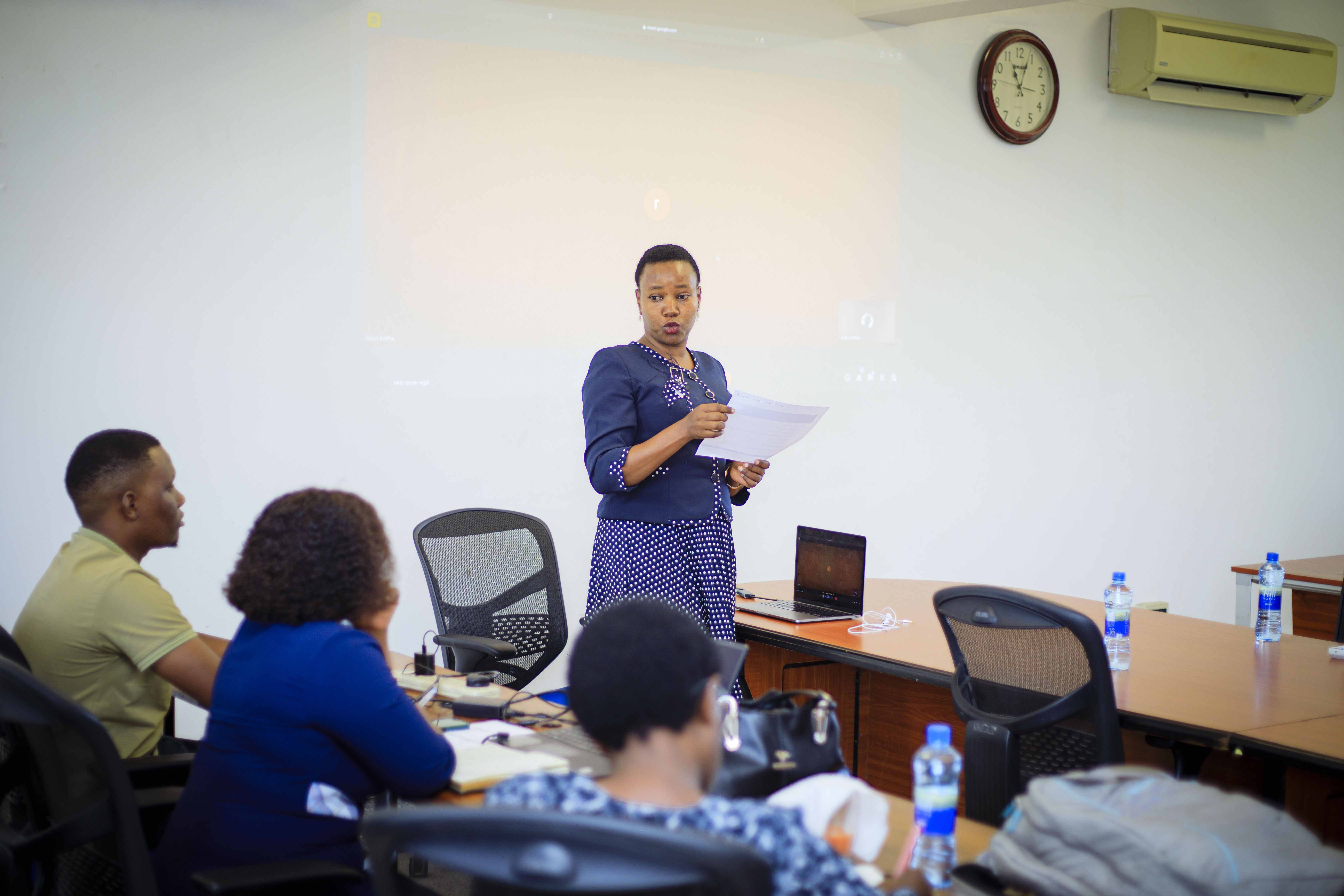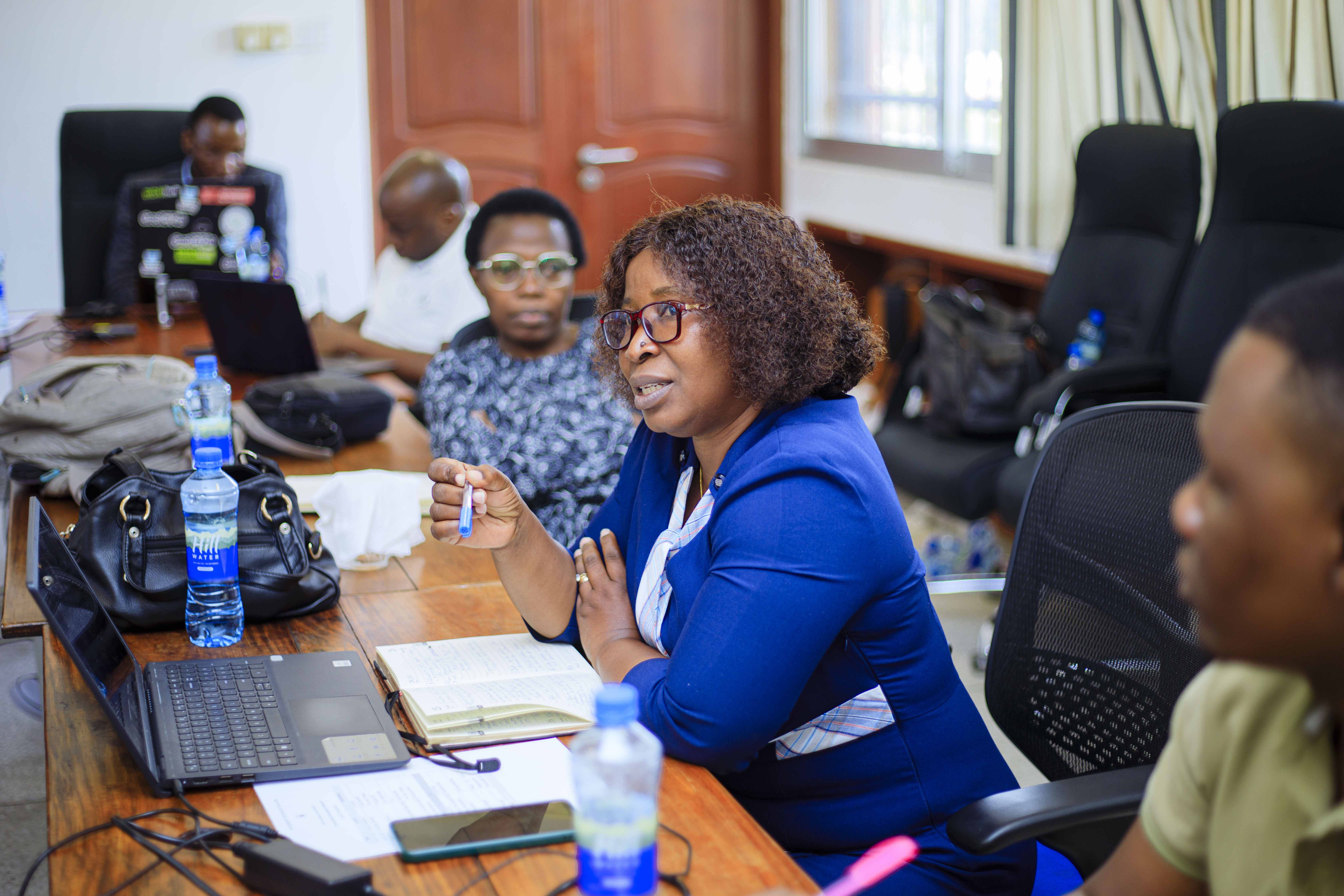UDSM-CoICT unveils digital marketplace to empower Lake Tanganyika fishing communities
By Tumaini Kibangala, CMU
The University of Dar es Salaam’s College of Information and Communication Technologies (CoICT) has taken a decisive step toward transforming the livelihoods of fishers and fish processors along Lake Tanganyika by announcing a new Digital Marketplace Platform.
The idea was presented during a high‑level stakeholder meeting that drew representatives from the Ministry of Livestock and Fisheries, the Tanzania Fisheries Research Institute (TAFIRI), the e‑Government Agency (e‑GA), NMB Bank PLC, Mixx by Yas, and the Tanzania Revenue Authority (TRA).
Dr. Godwin Mruma, Senior Lecturer in the Department of Electronics and Telecommunications Engineering, who represented the CoICT Principal, Prof. Baraka Maiseli, told participants that the platform is designed to expand market access, enhance economic inclusion, and promote sustainable fishing practices.
He described the project as a clear demonstration of UDSM’s resolve to turn digital innovation into grass‑roots solutions that align with Tanzania’s national digital‑transformation agenda.
“This platform opens new horizons—better prices, broader markets, and greener practices for our lake communities,” Dr. Mruma said, emphasising the importance of multi‑stakeholder collaboration in driving the venture forward.
The project’s principal investigator and lead consultant, Prof. Abdi T. Abdalla, offered a comprehensive overview of the marketplace, portraying it as a hub that will digitally link fishers, processors, traders, and end consumers throughout the Lake Tanganyika value chain.
User-friendly and inclusive platform
According to Prof. Abdalla, users will be able to trade via mobile phones or computers, monitor real‑time inventory and prices, communicate through AI‑powered messaging, and complete transactions using secure payment channels ranging from mobile money to bank transfers.
The platform will also coordinate logistics and delivery, provide interactive maps for location‑based services, and host educational content that encourages sustainable fishing. Prof. Abdalla underscored that user‑friendliness had guided every design choice, ensuring accessibility even for those with limited digital literacy.
Dr Eva Shayo, the project coordinator, set out a four‑phase implementation roadmap beginning with stakeholder engagement and needs assessment and moving through platform design, pilot testing in selected lakeside communities, and finally a full‑scale rollout across the Lake Tanganyika region.
“As part of the programme’s commitment to sustainability and inclusivity, at least 200 local users—60 percent women and 40 percent youth—will receive training to foster community ownership and long‑term viability”, said Dr. Shayo.
During an interactive discussion session, stakeholders offered feedback intended to refine the platform’s features and strengthen its policy alignment and financial sustainability.
Participants agreed that the project represents a pivotal step for Tanzania’s fisheries sector, reinforcing UDSM’s reputation for leveraging technology to advance inclusive economic growth and environmental stewardship.
With plans now set in motion, the Digital Marketplace Platform is expected to broaden horizons for Lake Tanganyika’s fishing communities, ushering them into a more connected, profitable, and sustainable future.


